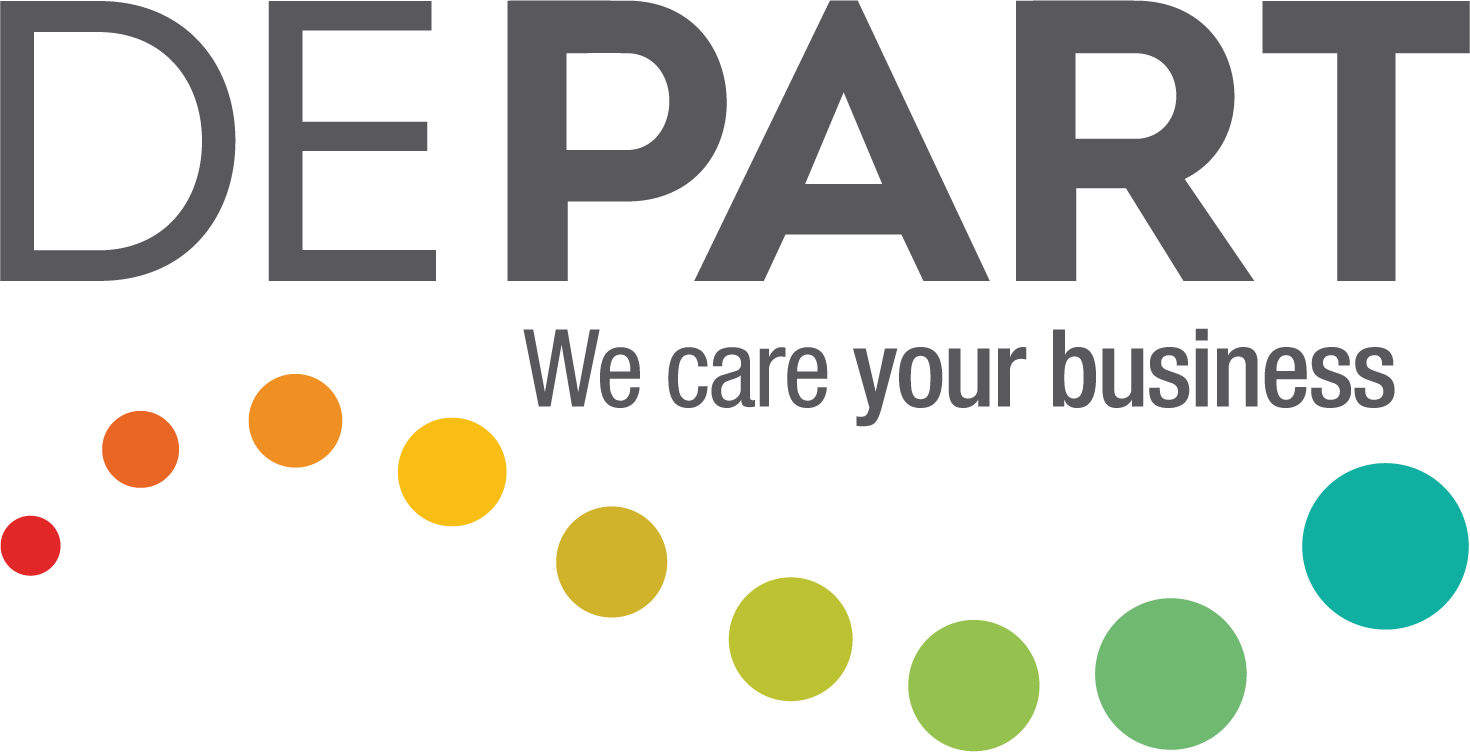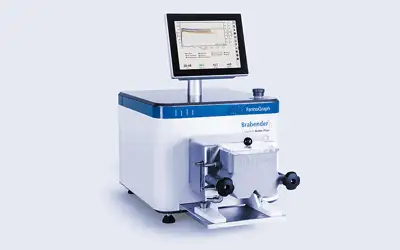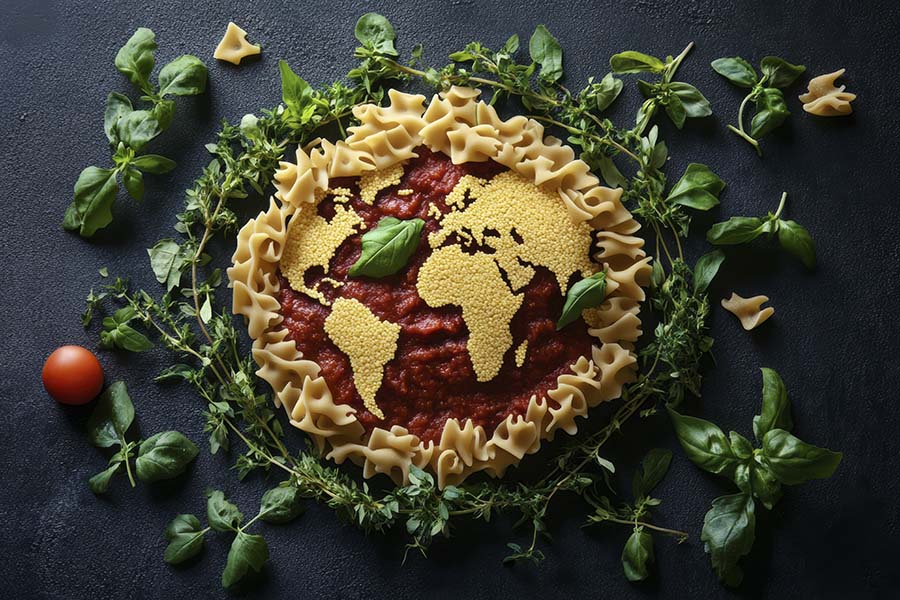A Tool for Technological Stability in Industrial Pasta Production: The Functional Role of ADK
As a functional additive developed specifically for durum wheat–based pasta flours, ADK Mate 130 is highly effective not only in preserving traditional quality but also in compensating for lower-grade raw materials.
Today, pasta production has gone beyond relying solely on the traditional combination of semolina and water to ensure sustainable product quality. Increasing raw material diversity, fluctuations in access to durum wheat, and consumer-driven quality expectations have led producers to seek functional solutions that enhance process stability. At this point, enzyme-based improvers play a critical role, particularly in gluten matrix stabilization, color control, and post-cooking quality.
ADK Mate 130 is a functional additive developed specifically for durum wheat–based pasta flours. It is highly effective not only in preserving traditional quality but also in compensating for lower-grade raw materials.

1. Gluten Matrix Stabilization and Textural Reinforcement
The distinctive feature of durum wheat lies in its low water absorption capacity yet high elasticity due to its rich gluten matrix. However, hybrid wheats or declining protein quality can weaken this structure. ADK Mate 130 promotes covalent bonding between gluten proteins, forming an elastic and cohesive dough structure. As a result:
- A compact dough with high resistance to extrusion pressure and low deformation is achieved.
- The risk of breakage during drying is reduced.
- The desired “al dente” texture is preserved after cooking. This effect is especially pronounced in low-protein semolina or blended formulations.
2. Color Stabilization: Control of Carotenoid Oxidation
The characteristic yellow hue of durum wheat originates from carotenoid pigments, particularly lutein. However, during processing, exposure to oxygen, high temperatures, and oxidative enzyme activity can lead to the breakdown of carotenoids and result in color loss. ADK Mate 130 minimizes color fading by controlling carotenoid oxidation. This is particularly valuable in high-temperature extrusion, delayed drying, or hybrid wheat applications.
Result: The natural yellow pigmentation is preserved, yielding a bright and vibrant pasta surface.
Result: The natural yellow pigmentation is preserved, yielding a bright and vibrant pasta surface.
3. Dough Rheology and Extrusion Stability
The product contains specialized functional agents that optimize dough rheology, providing:
These features prevent deformation, die marks, and surface cracking during extrusion, enhancing process stability. Additionally, it reduces mechanical load on the extruder and lowers energy consumption.
- Improved kneadability,
- Homogeneous water distribution,
- Increased plasticity and shape retention.
These features prevent deformation, die marks, and surface cracking during extrusion, enhancing process stability. Additionally, it reduces mechanical load on the extruder and lowers energy consumption.
4. Cooking Performance: Starch Gelatinization and Stickiness Control
During cooking, starch granules naturally absorb water and gelatinize. However, if the gluten matrix is not sufficiently strong, issues such as:
ADK Mate 130 reinforces the gluten structure, balancing gelatinization, preventing starch leakage, and minimizing stickiness.
Result: A homogenous, separate product with refined texture and high chewability is obtained.
- Starch leaching,
- Stickiness,
- Clumping,
- Disintegration in the plate can arise.
ADK Mate 130 reinforces the gluten structure, balancing gelatinization, preventing starch leakage, and minimizing stickiness.
Result: A homogenous, separate product with refined texture and high chewability is obtained.
5. Process Efficiency and Production Integration
ADK Mate 130 is compatible with both 100% durum wheat–based and bread wheat–blended formulations. It integrates easily into standard production processes without requiring additional processing or specialized equipment.
Key Functionalities and Technical Benefits of ADK Mate 130
The technological contributions of ADK Mate 130 to pasta production lines can be summarized as follows:
Key Functionalities and Technical Benefits of ADK Mate 130
The technological contributions of ADK Mate 130 to pasta production lines can be summarized as follows:
- Gluten Strengthening: Tightens the gluten network, forming an elastic and break-resistant dough, reducing deformation and breakage.
- Color Protection: Prevents oxidative degradation of carotenoids, ensuring a vibrant yellow appearance.
- Rheological Stability: Increases dough plasticity, supporting form stability during extrusion and enabling uniform shaping.
- Gelatinization Control: Limits starch leaching, prevents stickiness post-cooking, and ensures clean separation on the plate.
- Surface Firmness: Creates a stable outer structure, enhancing mechanical durability and extending shelf life.
Conclusion: Process Consistency and Brand Assurance
ADK Mate 130 not only enhances quality but also reduces production variability, lowers waste rates, and improves customer satisfaction. In the food industry, the shape and appearance of pasta are as important as its texture, chewability, and color retention after cooking. ADK Mate 130 provides a scientifically grounded, process-friendly, and practical solution that addresses all these quality criteria.
For more information about flour improvers, please contact us:info@departspares.com
ADK Mate 130 not only enhances quality but also reduces production variability, lowers waste rates, and improves customer satisfaction. In the food industry, the shape and appearance of pasta are as important as its texture, chewability, and color retention after cooking. ADK Mate 130 provides a scientifically grounded, process-friendly, and practical solution that addresses all these quality criteria.
For more information about flour improvers, please contact us:info@departspares.com





